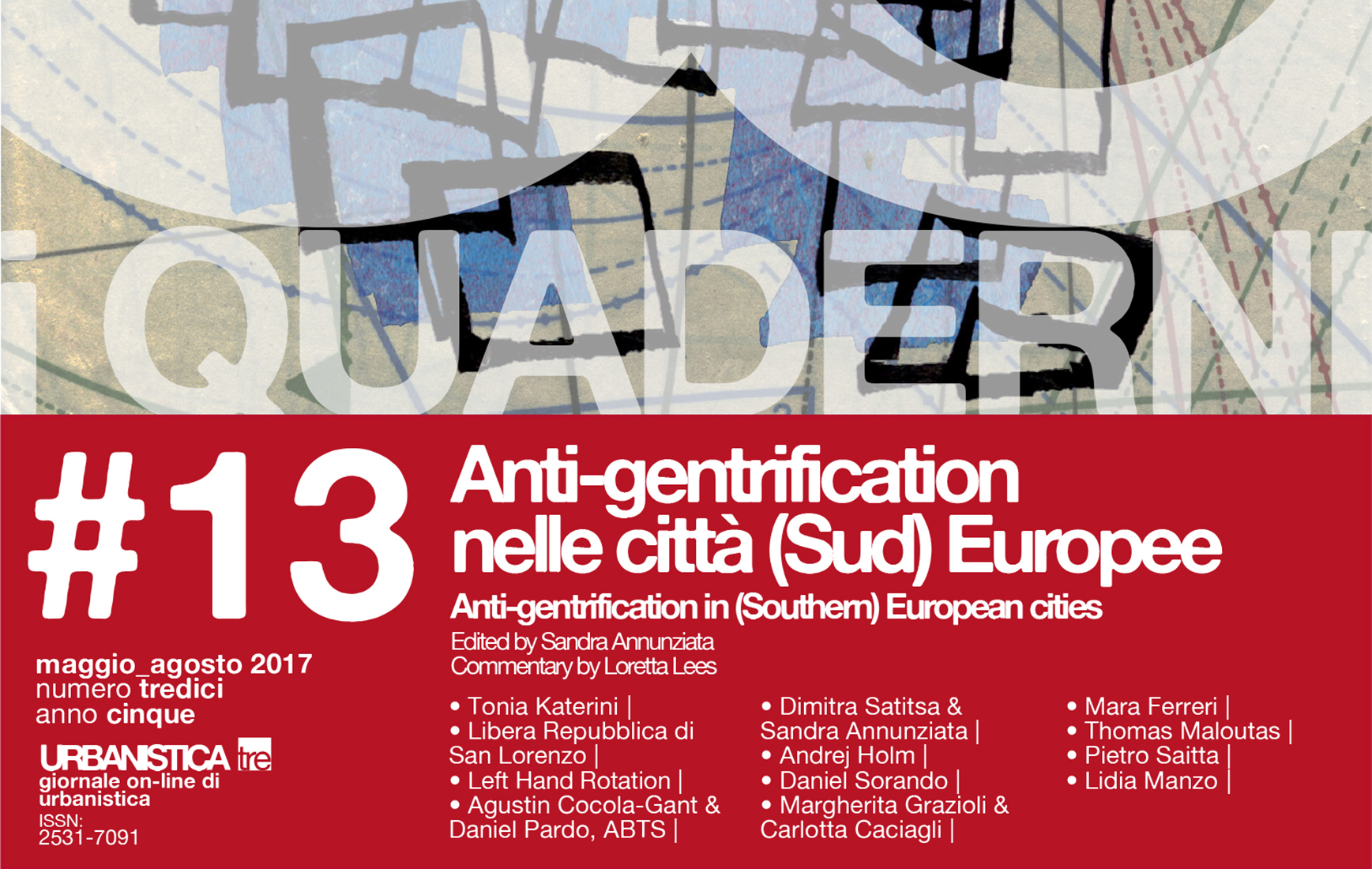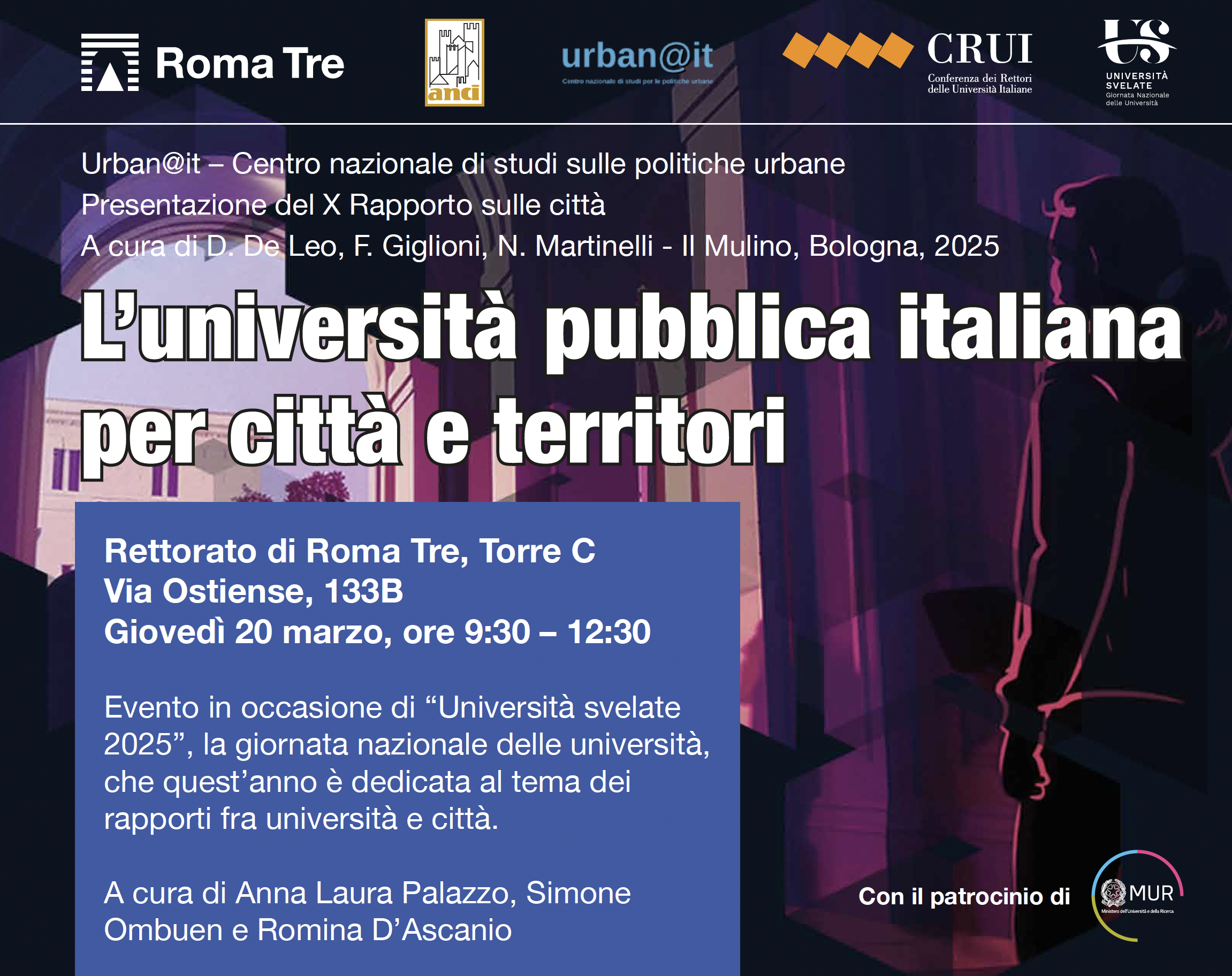
scarica il numero
1^parte (indice, editoriale, contributi)
2^parte (contributi, commento, apparati)
scarica l’indice
leggi l’editoriale in italiano
leggi il commento di Loretta Lees
maggio-agosto 2017
a cura di
Sandra Annunziata
Nota Etica | Publication ethics
Processo di peer-review | Peer-review process
Revisori QU3 | QU3 Reviewers
This edition of the Quaderni focuses on anti-gentrification practices and challenges which have been on the rise in public debates in many cities of the European South in recent years. It presents a variety of practices carried out in several European cities and presented by activists and/or by academics who met and engaged in a collective dialogue on the topic. In the first part of the Quaderni, activists highlight their experience of involvement in practices against evictions, austerity, commodification of urban space for touristic uses and speculaton in various cities. In particular, they were asked to share, their experience, repertoire of practices and proposals for action. In the second part of the issue, scholars stress the theoretical epistemological challenges, spotlight the ambiguities, contradictions and conflicts that this subject presents. In some cases, the researchers locate themselves halfway between academia and activism, critically engaging in conversaton with activists, or directly involved in housing protest and/or alternatve housing policy design. The result is a polysemy of voices, a collective effort, that enrich our understanding of what it means to resist gentrification.
The noun anti-gentrification is here employed with different aims, as a general framework for describing the complex regime of expulsions taking place in European cities. This enables the authors to consider as anti-gentrification a broad range of different practices of resistances all sharing a common claim: the permanent access to urban space (and housing) for vulnerable and precarious social groups and communities, which would otherwise be expelled by (hard and soft) processes of urban transformation. This framework also substantiates the exercise of prefiguration, imagination and enactment of practical actions aimed at countervailing displacement and placing social solidarity at the centre of the urban agenda.
I must mention three distinctive traits pertaining to the line of research from which this issue of the Quaderni stem from. The first aspect is that this work is aligned with a radical critical approach to gentrification, which assumes from the beginning the perspective of those being excluded and marginalized. I follow Marcuse in his claim: “If the pain of displacement is not a central component of what we are dealing with in studying gentrification – indeed, is not what brings us to the subject in the first place – we are not just missing one factor in a multi-factorial equation; we are missing the central point that needs to be addressed.” (2010: 187). The second aspect is that I deliberately assume a position that lies in-between a particularistic approach to the study of the phenomena, that focuses on the specificities of each context (Maloutas 2017) and a universalistic approach based on a critical understanding of the political economy of housing, with a tendency to extract and spotlight the regularities and the proportions that the phenomenon has assumed on a global scale (Lees et all 2015, 2016). The third aspect worth mentioning is that I choose to explore the anti-gentrification discourse and practices within a specific geographical context, the European cities, and in a specific time, the years that followed the economic crisis.
Sandra Annunziata







